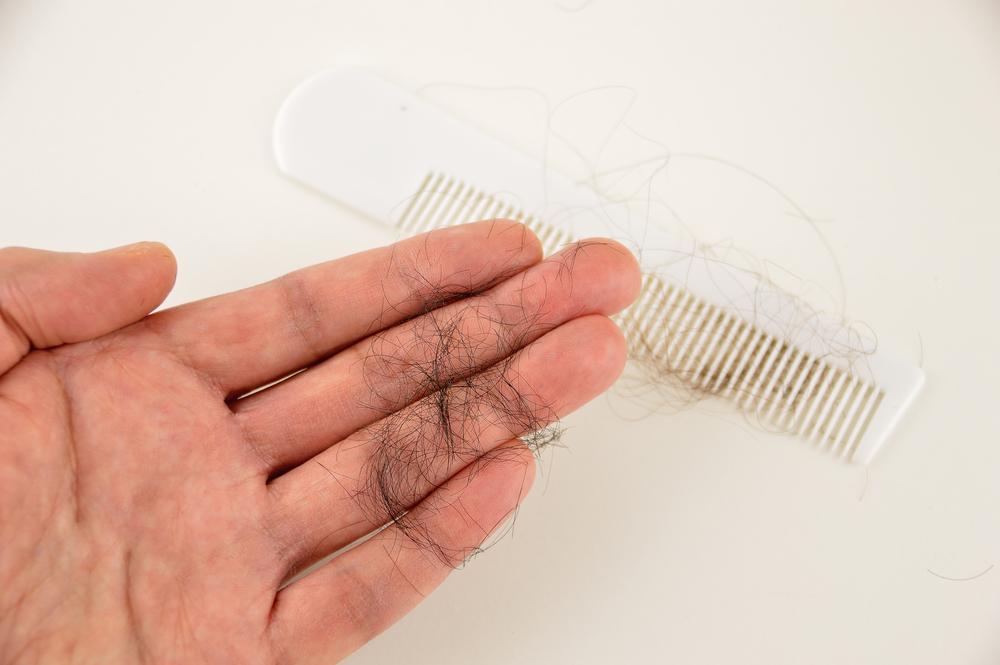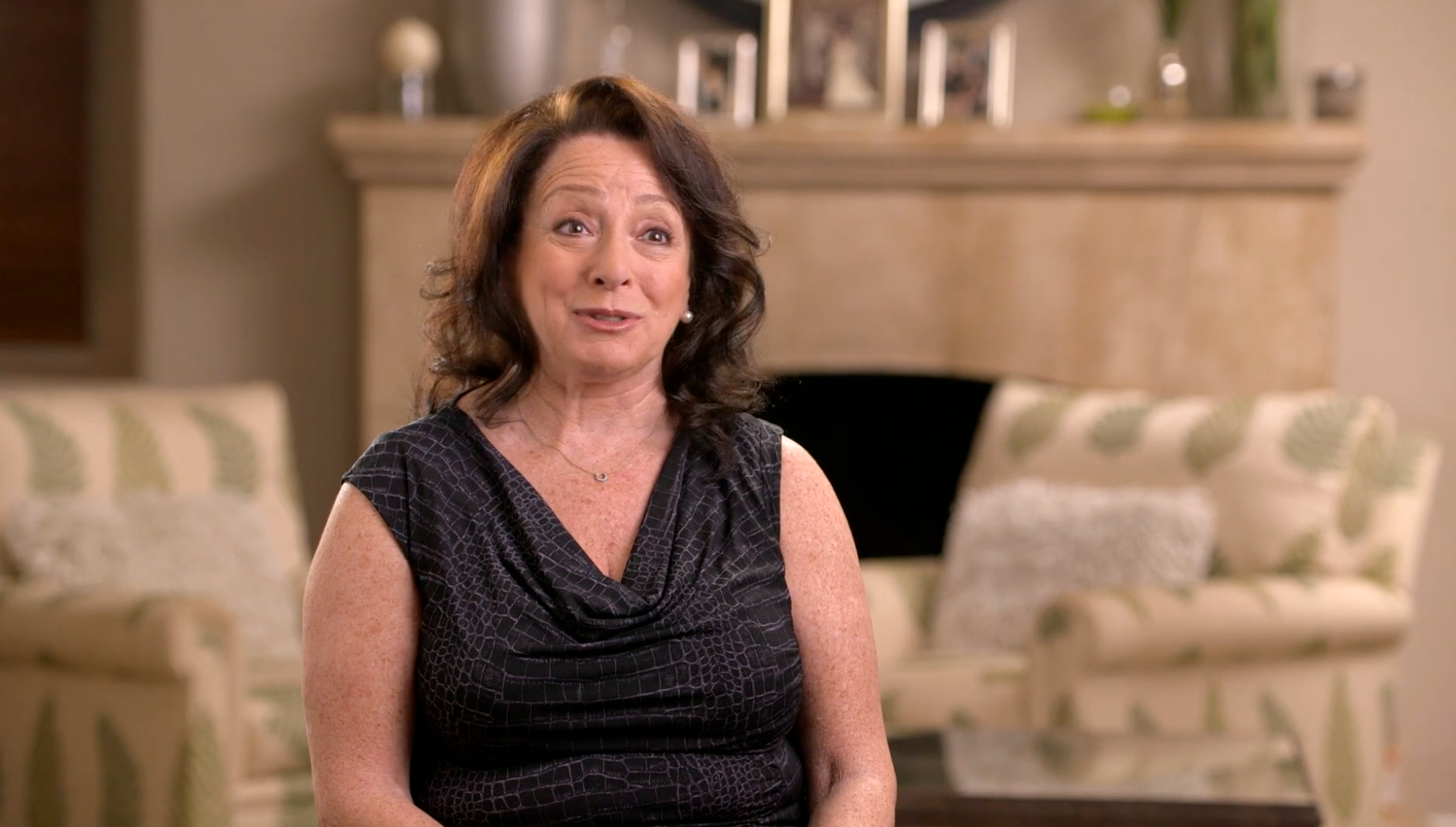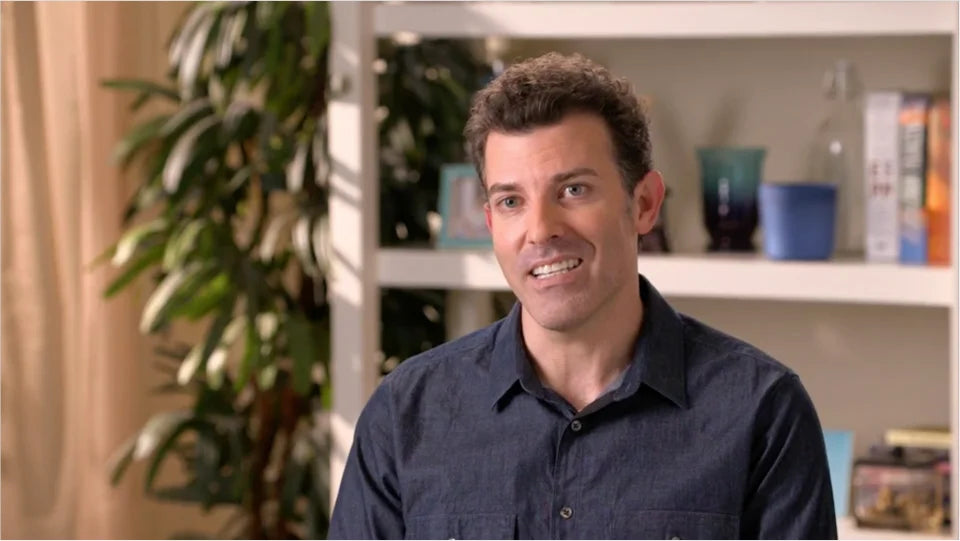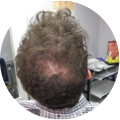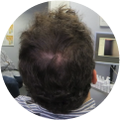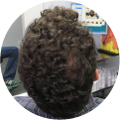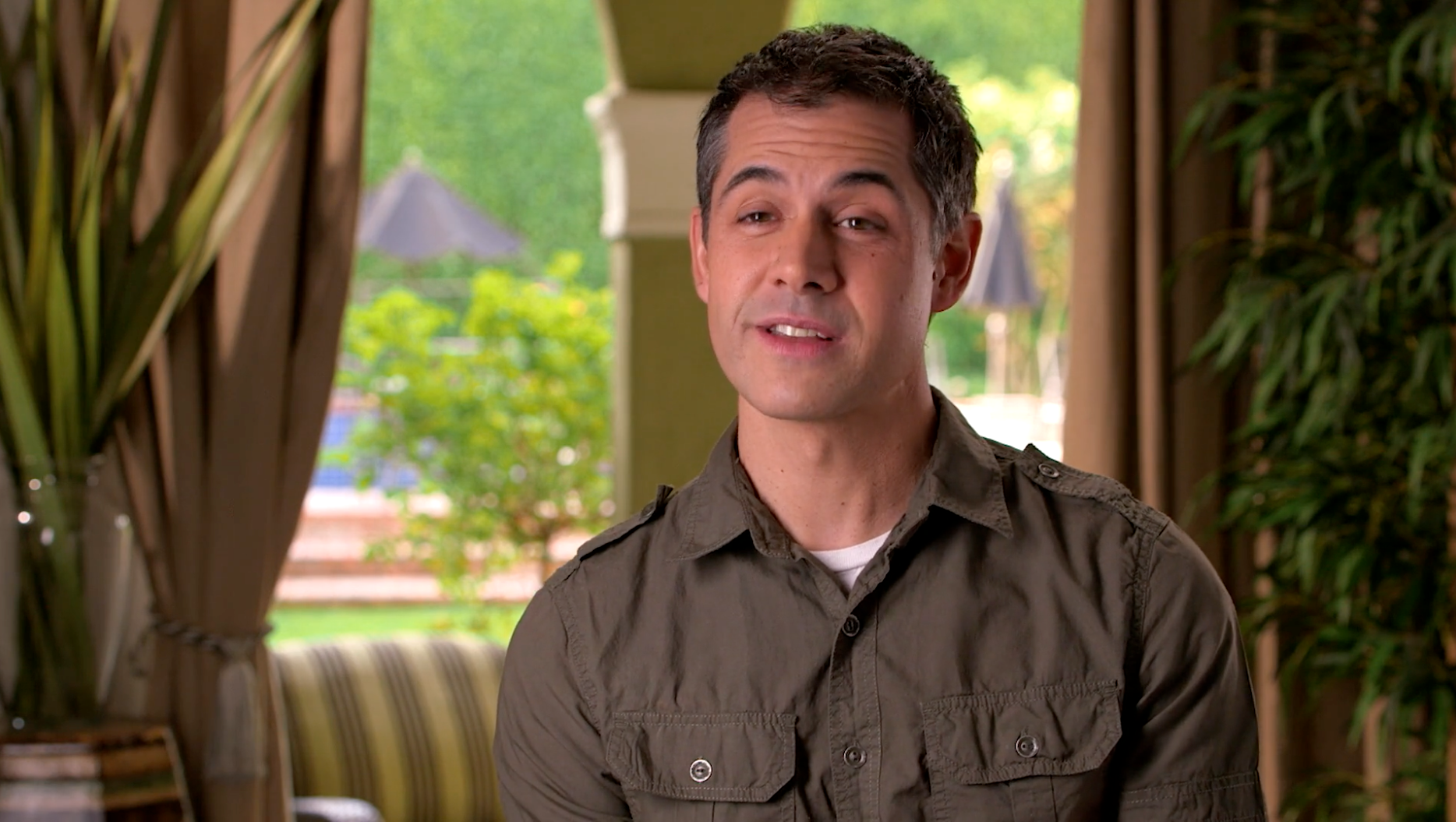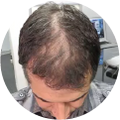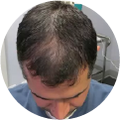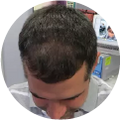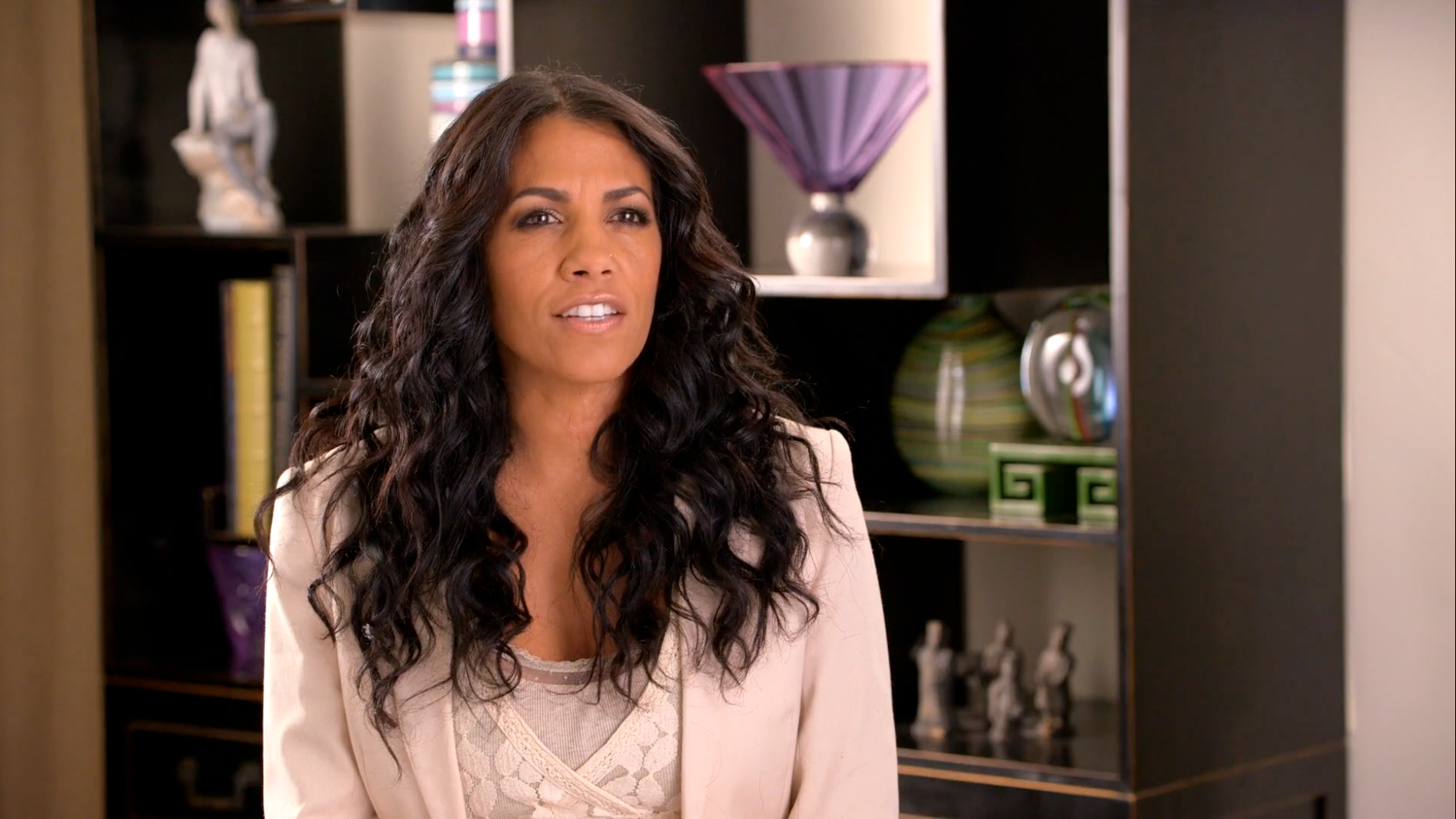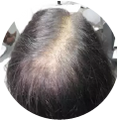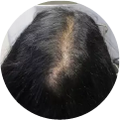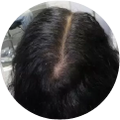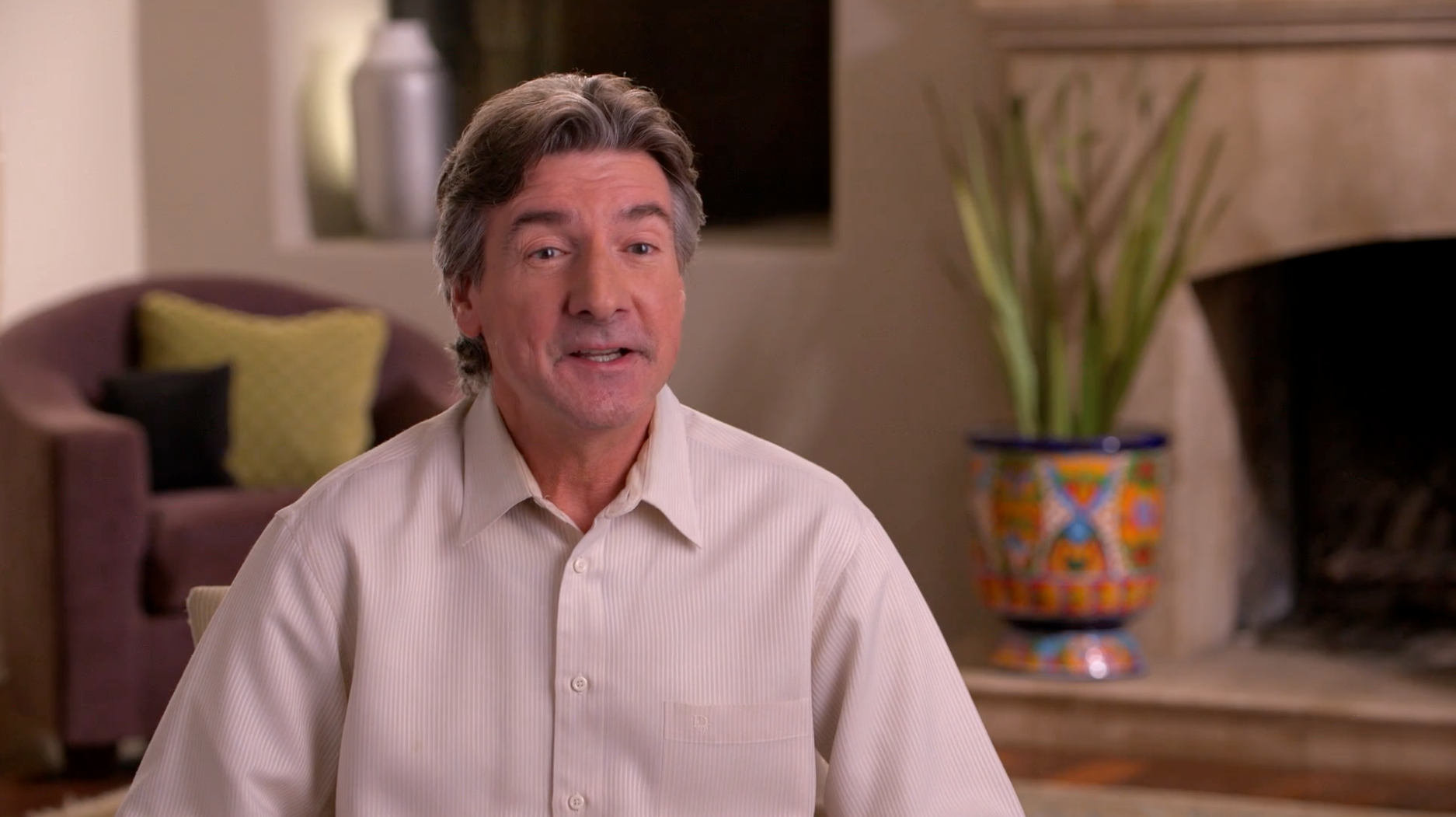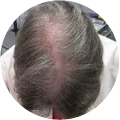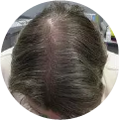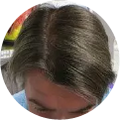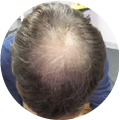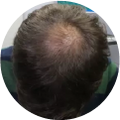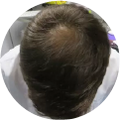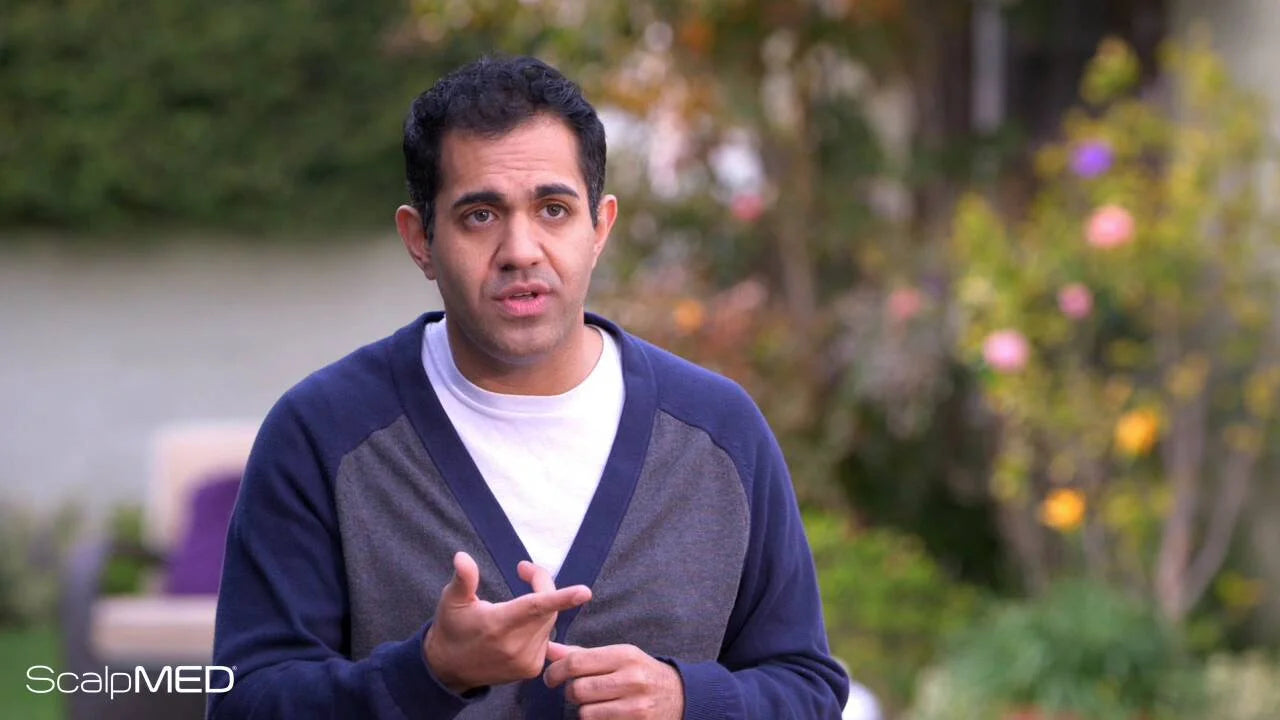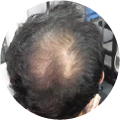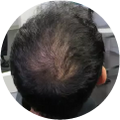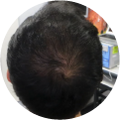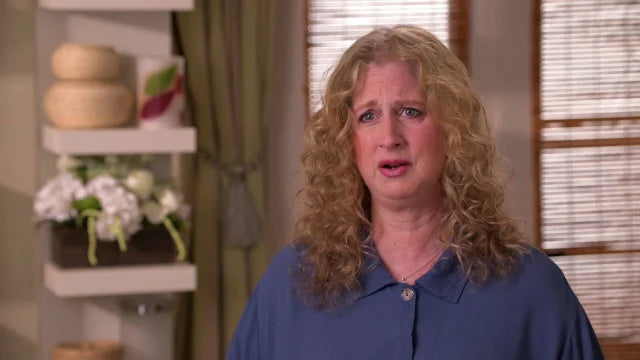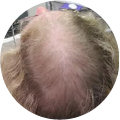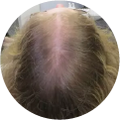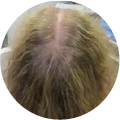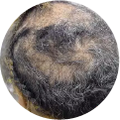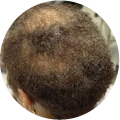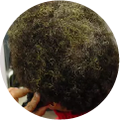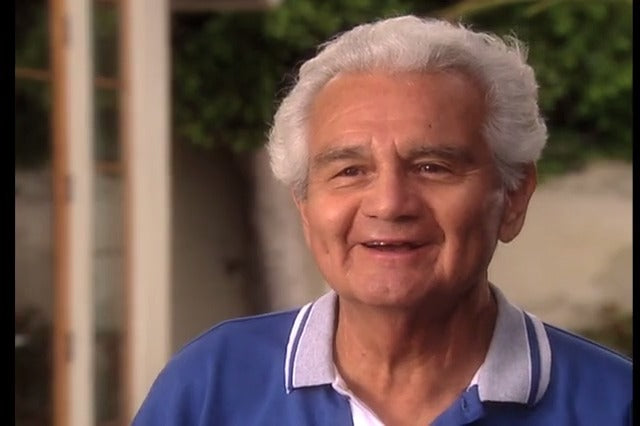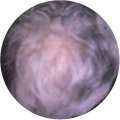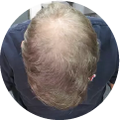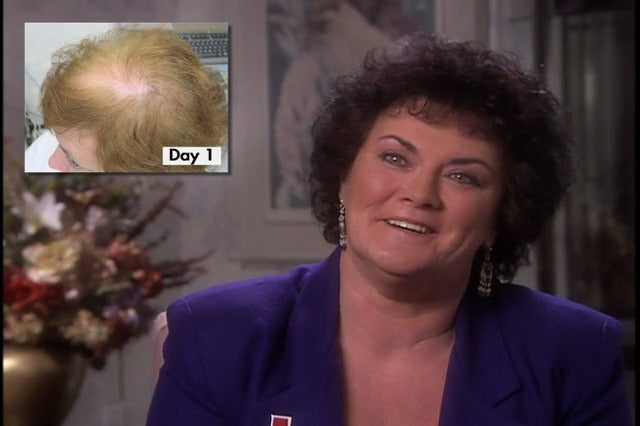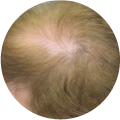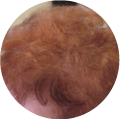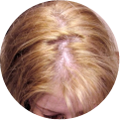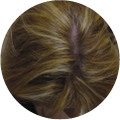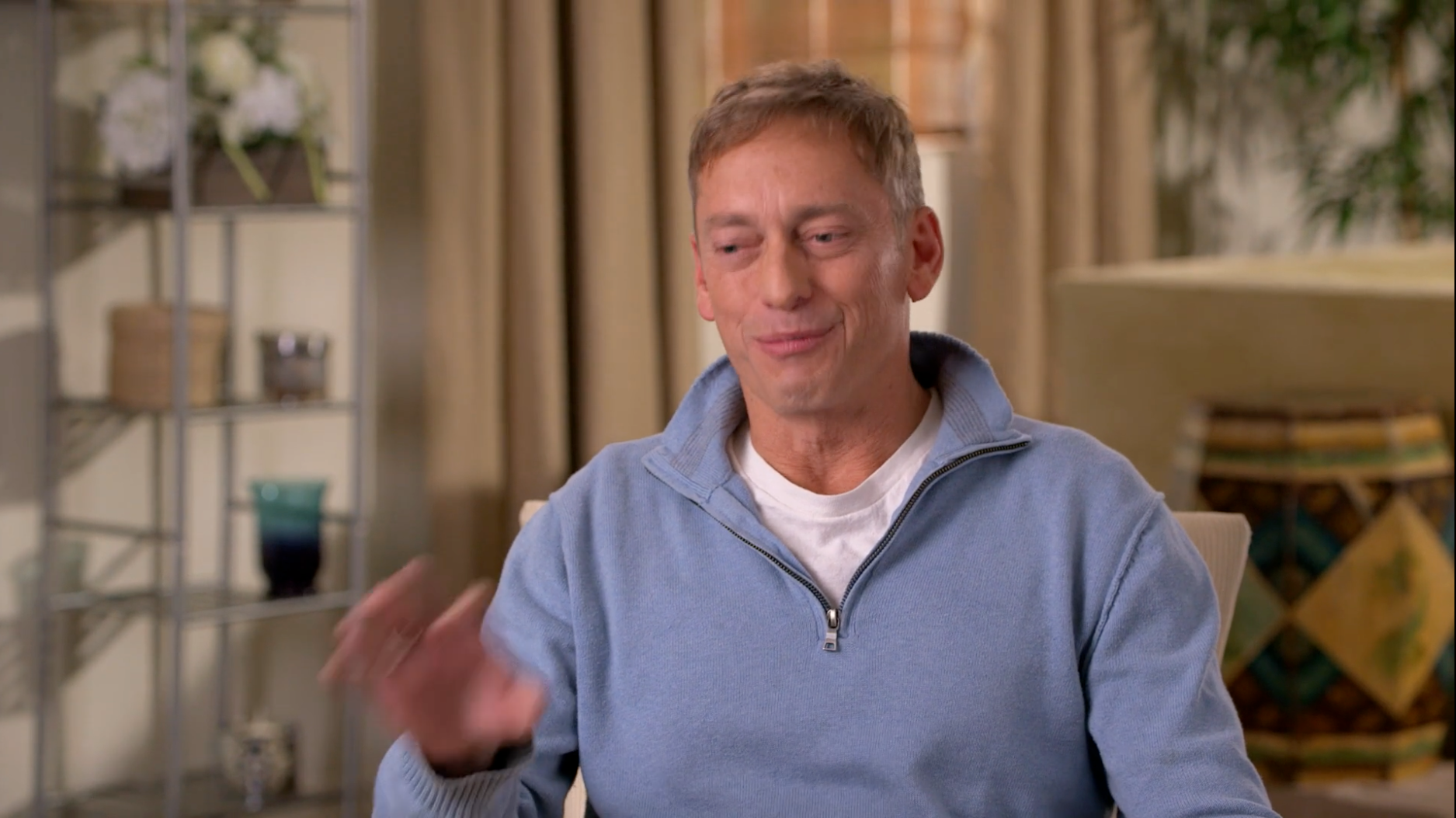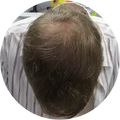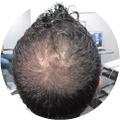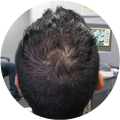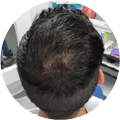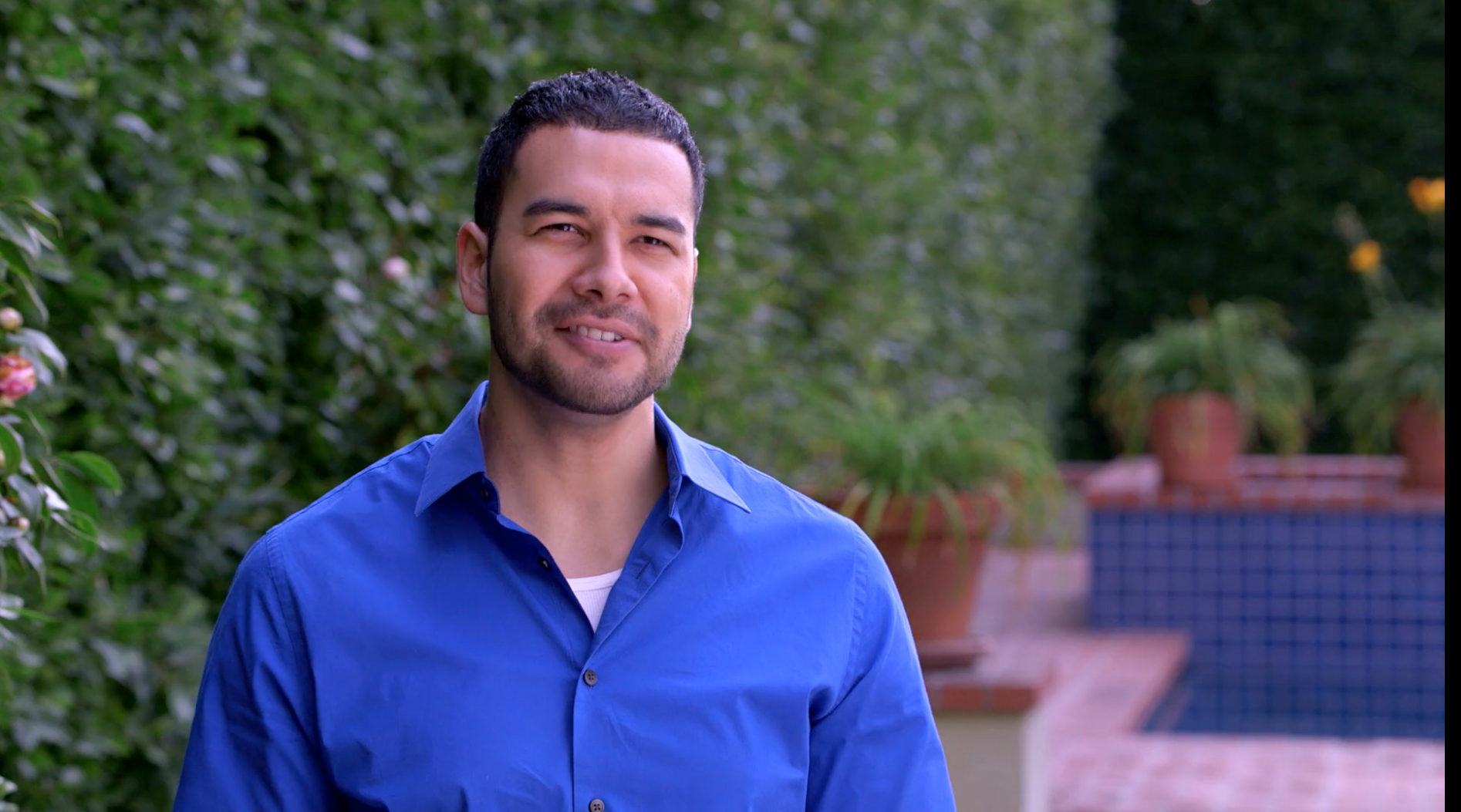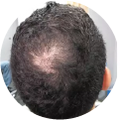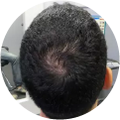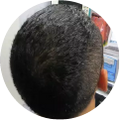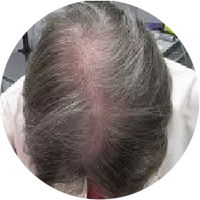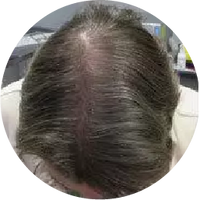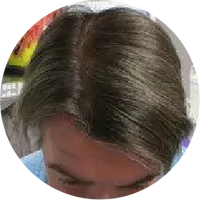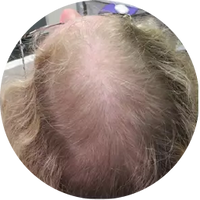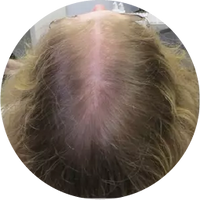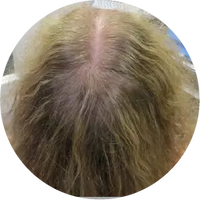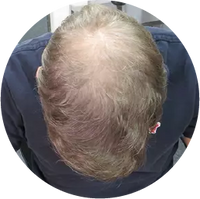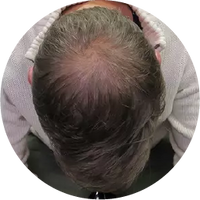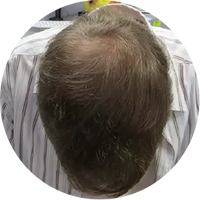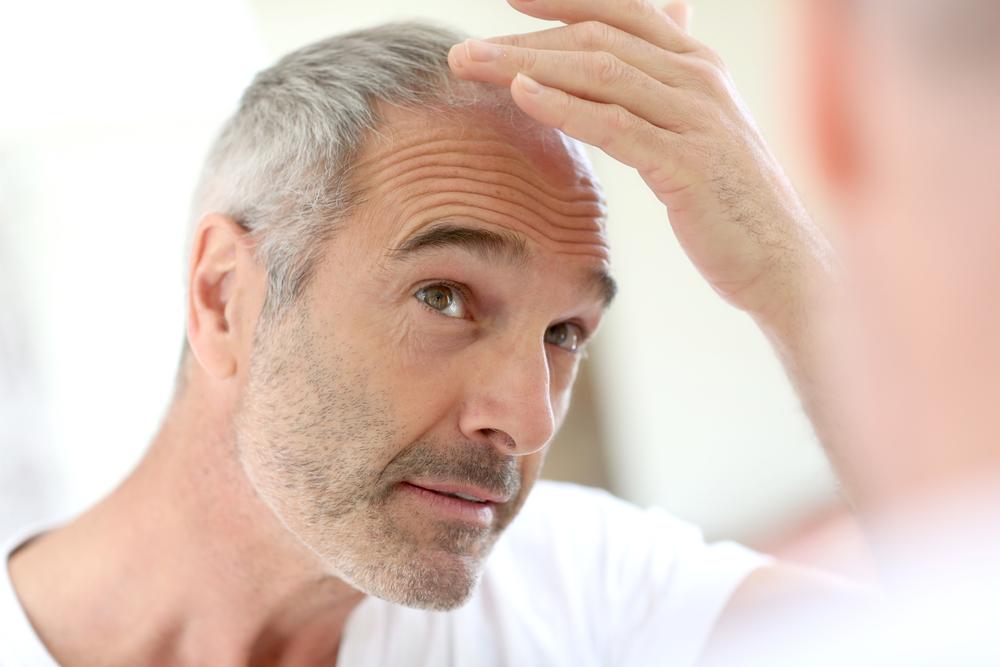
Have you ever had a bad hair day? Most of us have had days when our hair refused to cooperate with whatever style we were trying to coax out of it. Do you look back now and think how silly you were to be upset you couldn’t get your hair to do what you wanted — becausenow you would do almost anything to have that hair again? If your glorious head of thick, shiny hair is becoming a distant memory, you’re not alone. As we age, we typically have less hair, and the hair we have tends to be thinner, drier and more brittle. Excess hair loss can be devastating, causing us to lose our self-esteem — and even experience depression and anxiety. The good news isyou don’t have to accept that your hair loss is inevitable (in most cases). We’ll explore sixX things you can do to help prevent hair loss, regrow lost hair and feel younger and happier about your appearance.
How Does Hair Grow?
First, we should understand a little about how our hair grows and why it falls out. It’snormal to lose between 50 and 100 strands of hair each day. Each hair strand grows from a follicle, a tiny capsule embedded in our skin. Ourfollicles receive nutrients, hormones and oxygen from blood vessels.
About 90 percent of our hair follicles are in an active growth state when our hair and scalp are healthy. The active phase lasts from two to six years. About 2 to 3 percent of follicles are in a transitional phase, quickly moving from active growth to a resting state. The remaining 7 or 8 percent are at rest. Hair remains at rest for three to four months and eventually falls out, to be replaced when the follicle becomes active again. On average,hair grows about 6 inches per year and men’s hair tends to grow a little faster than women’s.
Why Does Hair Fall Out?
We can lose our hair for a variety of reasons. Sometimeshair loss is only temporary, and our hair will grow back when whatever caused the stress or trauma has passed. Unfortunately, somehair loss is permanent. Alopecia is the medical term for hair loss, and there are several different types. The reason(s) for your hair loss will impactwhether it falls out suddenly or gradually, falls out in patches or all over, can regrow on its own, requires treatment to regrow or needs immediate care to prevent permanent hair loss.
The hair loss we’re most familiar with isandrogenetic alopecia (AGA), which refers to male or female pattern baldness. You can thank your genes for this type of hair loss since it is almost always hereditary. If your parent(s) suffered from AGA, you’re much more likely to experience similar hair loss. This type of hair loss follows a pattern. In men,AGA typically causes a receding, “M” shaped hairline and/or balding on top of the head. Usually, hair will continue to grow along the sides and the back. In women,AGA typically causes hair loss along the part and throughout the scalp, so hair is thinner all over.
AGA is primarily driven by an androgen hormone called dihydrotestosterone (DHT), a derivative of testosterone. DHT impacts our hair follicles, causing them to shrink over time. As a result, follicles can only produce thinner strands and eventually can’t grow hair at all.
AGA-driven hair loss can often be slowed or even reversed if treatment starts early before the follicles shut down completely.
Learn More About Early Treatment.
Other Circumstances and Conditions Linked to Hair Loss
Don’t assume all hair loss is hereditary because even common, non-dangerous circumstances can lead to hair loss such aschildbirth and starting or ending birth control pills. The hormone fluctuations that occur in these situations can cause temporary hair loss, which usually goes away within a few months and does not require medical treatment.
All of the following areadditional reasons we can lose our hair:
- Illnesses and chronic medical conditions such as heart disease, polycystic ovary syndrome, thyroid disorders, diabetes, kidney & liver disease, autoimmune disorders, some cancers, lupus, syphilis and iron-deficiency
- Alopecia areata (autoimmune disorder when the body attacks hair follicles)
- Scarring alopecia (inflammation that destroys hair follicles)
- Chronic stress
- Physical or emotional trauma
- Heavy metal toxicity
- Fungal infections such as ringworm
- Medications
- Medical treatment such as chemotherapy & radiation
- Surgery
- Restrictive diets & poor nutrition
- Smoking
- Certain hairstyles such as tight cornrows and ponytails
- Chemical treatments such as perms and relaxers
- Trichotillomania (psychiatric disorder that causes recurrent hair pulling)
Fortunately, some of these situations and conditions are temporary, such as an illness or ending a problematic medication. Now let’s explorewhat you can do to prevent or slow down your hair loss.
#1) See Your Doctor
While it’s not unusual to experience some hair loss and thinning hair as we age, it’s still a good idea to check in with your doctor to make sure there isn’t an underlying cause, especially if you’re younger than 40 or your hair loss is sudden.Don’t just assume hair loss is a normal part of aging — hair loss is often one of the first signs of a serious medical condition. You can start with your primary care doctor or see a dermatologist. If you’re already taking a medication, be sure to let your doctor know.
#2) Change Your Hairstyle or Treatments
If you frequently weartight buns, cornrows, weaves, braids, hair extensions, ponytails or tight headwear, the constant tension on your hair follicles can cause a type of hair loss called traction alopecia. Traction alopecia is not a medical condition and is reversible — unlessyour hair follicles are permanently damaged.
If you notice itching, redness, small pimples, ulcers or patches of broken hair and bare scalp around the areas your hair has endured repeated strain, you may have developed traction alopecia. Hair relaxers and other chemical treatments can change the hair shaft and cause traction alopecia.
Change your hairstyle frequently and avoid tight hairstyles and headwear to prevent permanent damage.Topical treatments such as ScalpMED® contain an FDA-approved, highly effective medication called Minoxidil that promotes hair growth.
#3) Review Your Medications
You’ve probably heard that chemotherapy and radiation to treat cancer cause significant hair loss, but those are not the only ones.Dozens of medications can cause hair loss. If you’re treating conditions and taking medications such as blood thinners, cholesterol-lowering, anticonvulsants, antidepressants, anti-fungals, beta-blockers, high blood pressure, hormones including birth control, anti-inflammatories, thyroid disorders, Parkinson’s or antacids, one or more might be causing your hair to fall out.
Usually,once you stop taking the medication, your hair will start to grow back in about three to six months. It can take 12 to 18 months for it to return to its previous state. You can check the side effects of your medication on sites such as RxList.com. If you’re taking a drug that causes hair loss for an indefinite period,ask your doctor if there is an equally effective substitute that doesn’t cause this unwanted side effect.
You canhelp your hair grow back more quickly with products from ScalpMED®, which offersFDA-approved medicated topical treatments, patented formulas that help deliver nutrients directly to hair follicles, cleansers and thickening conditioners. Click here to learn more.
#4) Examine Your Diet
You are what you eat, so the saying goes, and your diet plays a significant role in your hair’s health and appearance. From diets lacking nutrients to food restrictive diets to weight loss procedures, our bodies can end up deficient in nutrients necessary for healthy scalps and hair.
Unhealthy Diet
We already know junk and fast food isn’t healthy when it’s our primary source of calories, but did you know these foods can cause our hair to fall out or be brittle? If we consume a lot oflow-nutrient foodsand minimal fruits, vegetables, healthy fats and lean proteins, ourdiet is lacking nutrients that our hair and scalp need. If we’re obese, our body may also have trouble absorbing the few nutrients we are getting due to how nutrients are stored and distributed.
Vegan / Low Protein Diets
If you follow a low protein eating plan, you might be missing out on essential nutrients, vitamins and minerals.Diets very low in protein, especially ones such as vegan and vegetarian that eliminate meat, can lead to iron deficiencies. Adirect correlation exists between thinning hair and a lack of iron. Iron deficiencies are more common in women, which can sometimes be attributed to heavy menstrual periods or pregnancy. Medical conditions such as inflammatory bowel disease, which are also more common in women, can lead to insufficient iron absorption.
Blood tests that measure ferritin (iron-binding protein) levels can determine if you have an iron deficiency. You may need vitamin C supplements if you’re iron-deficient because our intestines need vitamin C to absorb iron properly.
Food Restrictive Diets
Popular diets that eliminate food groups such asketo, gluten-free, paleo, South Beach, Whole 30 and other low-carb plans can result in vitamin A, D, B and C deficiencies, as well as mineral and micronutrient deficiencies.
Researchers have foundlinks between vitamin D deficiencies and hair loss. Hair follicles need vitamin D, especially during the anagen (growth) phase. Our bodies need exposure to sunlight to synthesize vitamin D, so if you live in an area that doesn’t receive much sun, such as frequently overcast areas or in the far north or south, you may be vitamin D deficient. Below we discuss how specific diets result in vitamin D deficiencies.
Our bodies need an adequate supply of vitamin A to stay healthy.Vitamin A helps our skin glands, including in our scalp, to make sebum, an oily substance that moisturizes our scalp and hair. While not linked directly to hair loss (unless we get too much A, which we discuss below), avitamin A deficiency can cause our hair to be dry and brittle, and prone to breakage.
Eating Disorders
If you suffer from aneating disorder such as anorexia nervosa or bulimia, your body is likely lacking nutrients. Be careful aboutcrash dieting — yes, you can lose weight, but these extreme eating plans cause temporary hair loss and serious health conditions, and even death.
Weight Loss Procedures and Drugs
Many surgical weight-loss procedures and diet drugs contribute to nutritional deficiencies. Multiple studies have found thatpatients who underwent surgical procedures such as bariatric bypass surgery were deficient in nutrients even before their operations, primarily due to a poor diet. The problem doesn’t get better after surgery because the surgical changes can limit the absorption of vitamins, minerals and micronutrients, particularly iron, calcium and vitamins D and the Bs.Weight-loss medication can also inhibit nutrient absorption, especially the fat-soluble vitamins A, D and E.
Some prescription drugs beyond weight-loss ones can deplete our bodies of nutrients necessary for healthy hair and scalps. For example, some cholesterol-lowering drugs are linked to fat-soluble vitamin deficiencies.
Combating Dietary Nutritional Deficiencies
If you have a medical condition or have been following one of these eating plans and your hair is thinning, consider dietary changes or supplements to combat your hair loss.You should consult your doctor before adding supplements to your diet because you can get too much of a good thing, which can cause other health problems. Some vitamins such as C and the Bs are water-soluble, meaning they dissolve in water and our body eliminates any excess through our urine.
Fat-soluble vitamins such as A and D need fat to dissolve, and our body stores them in our tissues. Once stored,these vitamins tend to stay, so consuming too much of a fat-soluble vitamin supplement can lead to a dangerous condition called hypervitaminosis. Hypervitaminosis A can cause nausea, vomiting, irritability, vision changes, rough skin, bone pain, cracked fingernails and even hair loss. Hypervitaminosis D symptoms include fatigue, excessive thirst and urination, irritability, tinnitus, muscle weakness, nausea, vomiting, high blood pressure and kidney damage.Avoid consuming fat-soluble vitamin supplements without consulting a doctor. It’s rare to end up with hypervitaminosis from diet alone.
If you're concerned about hair loss due to your diet, including medically necessary diets to manage conditions such as celiac disease or other gastrointestinal disorders,you can help your hair regrow faster by applying topical treatments — such as ScalpMED®s Vitadil — that contain an FDA-approved drug called Minoxidil. ScalpMED® has a unique patented delivery system that allows for no negative side effect, learn more...
#5) Examine Your Scalp
A variety of scalp conditions can develop that lead to hair thinning and loss. Examine your scalp forlesions, scaly patches, blisters, red tender areas, itchy patches, nodules, bumps, pimples or smooth, hairless sections.
Scalp sores, pimples and bumps can be the result of a variety of conditions such as:
- Folliculitis (hair follicle infection)
- Burst cysts
- Impetigo (bacterial infection)
- Dissecting cellulitis of the scalp (uncommon, incurable condition that causes nodules and abscesses in black men aged 20 – 40 years)
- Cicatricial alopecia (group of rare disorders that destroy hair follicles resulting in scarring and permanent hair loss)
- Alopecia mucinosa (rare disorder that causes a jelly-like substance to accumulate inside hair follicles leading to bumps or pimples)
Conditions that causescaly or itchy patches include:
- Tinea capitis / scalp ringworm (common fungal infection that can lead to scarring and permanent hair loss if untreated)
- Seborrheic dermatitis (common condition that causes patches of greasy scalp covered with flakes or scales)
- Psoriasis (chronic inflammatory condition that causes dry, itchy, red areas with white scales)
Smooth patches on the scalp can indicate:
- Alopecia areata (autoimmune disorder that causes smooth bald patches)
- Lichen planopilaris (rare inflammatory condition that affects young adult women and can lead to permanent hair loss)
Scalp conditions beyond these can cause temporary or permanent hair loss, which is why you should see your doctor if you experience any type of sores, itchy or red areas or bald spots. Many conditions present differently in different people or have multiple symptoms. For example, psoriasis can cause sores and scabs in addition to dry, red areas. Most of thesescalp conditions require treatment to eliminate or manage them.
#6) Assess Your Hair Care Products and Routine
In our quest for healthy hair, we sometimes think more is better — more products, cleansing and styling tools. We’ve already mentioned that chemical treatments such as relaxers and perms and some hairstyles damage our hair, but even our haircare products and routines can too.
Haircare Products
First, assess your shampoo — opt for agentle shampoo that doesn’t strip your hair and scalp of moisture. Alwaysuse a conditioner. You don’t need to use conditioner on your scalp, but you should use it on your hair, especially if your hair is long. Try tominimize your use of hairsprays, gels and styling formulas that contain drying agents.
You don’t necessarily need to spend a fortune on salon haircare products, but cheap brands sometimes contain harsh chemicals. If you’retrying to regrow hair, look for products that contain plant-derived ingredients such as green tea, turmeric and bamboo extracts. Check out ScalpMED's Thicken My Hair Cleanser for Men and Women.
Cleansing Routine
You should alsowash your hair regularly, but this doesn’t necessarily mean daily. If you regularly exercise, use a lot of styling products or engage in activities where you encounter dirt, dust or pollen, you’ll probably need to wash your hair more often. If your hair is thin or straight, it can appear greasy faster than those with curly or thick hair.
How you wash makes a difference too! Don’t pile your hair on top of your head and glop a bunch of shampoo on it —use the least amount you can and only gently massage it into your scalp. Your hair strands don’t usually require washing and you will only end up with more tangles and breakage.
Using yourfingers or an extremely wide-tooth comb to distribute conditioner throughout your hair. Rinse thoroughly and gently squeeze water out of your hair before you get out of the shower. Avoid using conditioner directly on your scalp, or it can lead to buildups.Consider using a cleanser designed specifically for detoxing and removing buildup such as ScalpMED®s Detox My Scalp.
After Cleansing Best Practices
If you’ve been reaching for a towel and rubbing it all over your head, stop!Wrap your hair in the towel or use it to wipe and squeeze the water out of your hair carefully.
Gently comb or brush your hair while it’s still damp, starting at the ends. Slowly work out any tangles. If your hair is prone to tangles, you can use a gentle, non-drying de-tangler. The last thing you want to do is tug on your hair — you may break it, or even worse, pull it out.
Styling Tools: Try to let your hair air dry. If you must blow dry it,use the lowest heat setting and use a protective heat spray. Avoid using curling or straightening irons, especially if your hair is still damp.
Consider a Hair Thickening Product: Be careful here, because many hair thickening shampoos, conditioners and treatments are just hype and only coat your hair. They can make your hair appear thicker temporarily but aim for products that promote and stimulate growth such as amino acids, caffeine, biotin, zinc and plant extracts.
Hair Loss Is Often Reversible
Thin hair and hair loss can make us miserable, butmany of the causes are treatable, especially if caught early. Work with your doctor to rule out underlying health conditions. If your situation is temporary or reversible, ScalpMED® makes a series of patented haircare products designed to be used together, with proven results.
Sources:
http://www.americanskin.org/resource/alopecia.php
https://dermnetnz.org/topics/traction-alopecia/
https://www.americanhairloss.org/drug_induced_hair_loss/
https://www.ncbi.nlm.nih.gov/pmc/articles/PMC6380979/
https://www.health.harvard.edu/staying-healthy/should-you-try-the-keto-diet
https://www.thehealthy.com/nutrition/diets-vitamin-d-deficiency/
https://www.medicalnewstoday.com/articles/322238.php#symptoms
https://www.medicalnewstoday.com/articles/318415.php#hypervitaminosis_symptoms
https://dermnetnz.org/topics/hair-loss/
https://www.todaysdietitian.com/newarchives/111412p50.shtml
https://www.aafp.org/dam/AAFP/documents/about_us/sponsored_resources/Nature%20Made%20Handout.pdf



